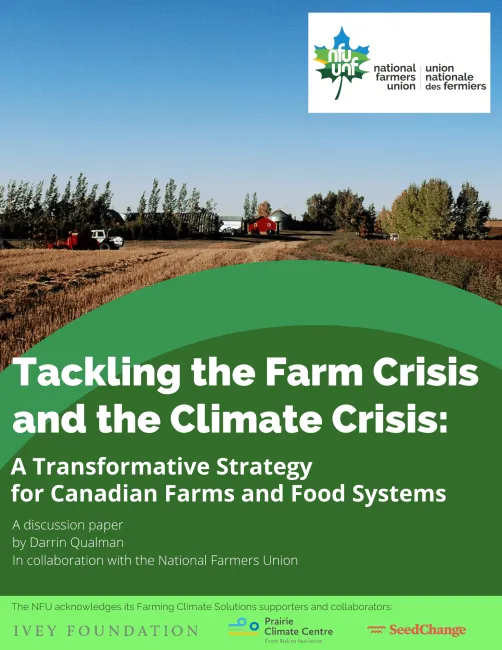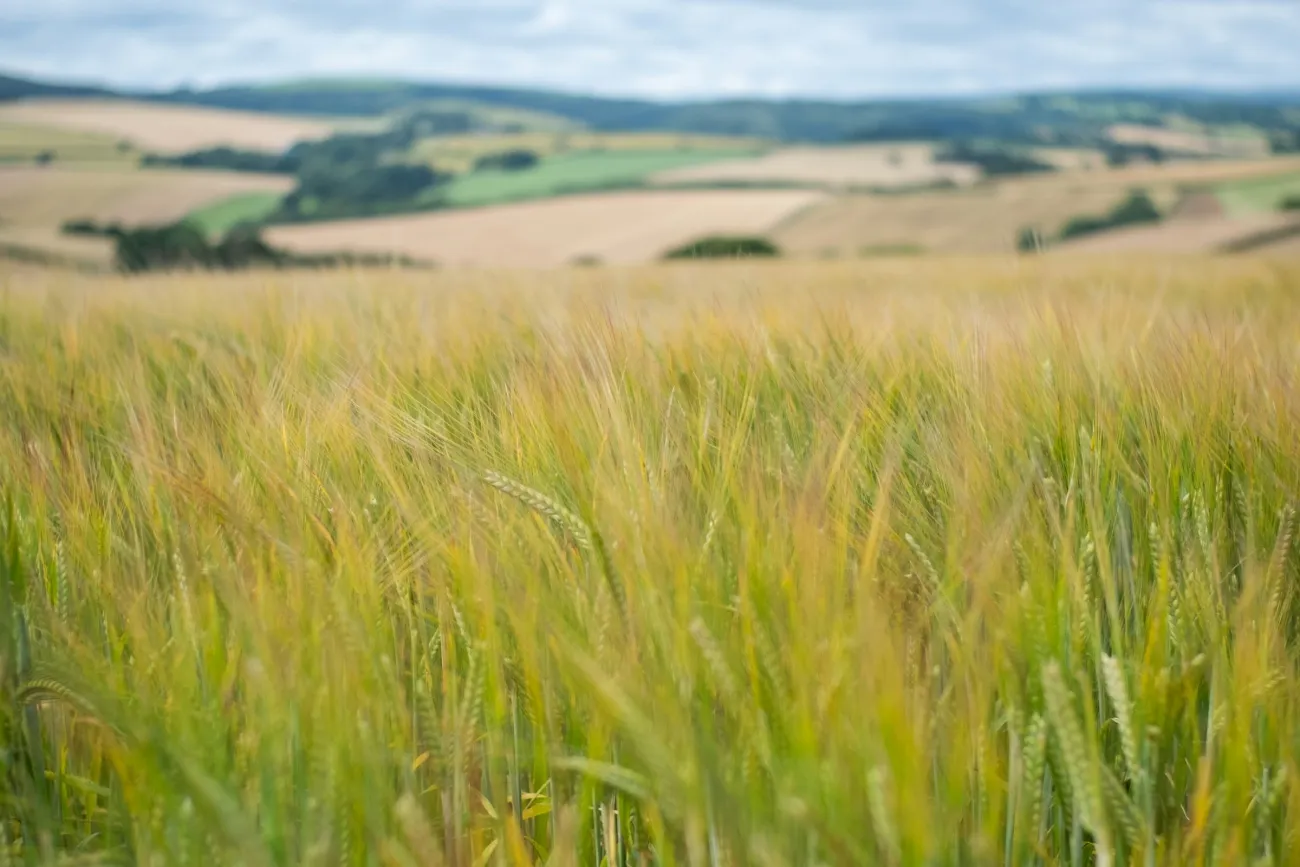This report from Canada’s National Farmers Union examines how climate change is likely to affect agriculture in Canada, and sets out a strategy for the food system to contribute to mitigating the climate crisis. It argues that low-input, low-emission styles of agriculture should be incentivised.

According to the report, farms in Canada are under financial pressure from high input costs such as land, machinery, fertilisers and pesticides, driven by a farming model that focuses on achieving high outputs by using a high level of inputs. The report argues that these high input levels are the cause of high levels of greenhouse gas emissions from agriculture, as carbon dioxide from fossil fuel energy use and nitrous oxide from fertiliser use, and that low-emissions agriculture must therefore be low-input.
The farming practices recommended by the report include organic, holistic, and agroecological production systems, using cover crops, intercropping and multi-cropping, better manure management, using electric farm vehicles, setting aside some land for nature conservation or restoration, and cutting food waste.
Regarding cattle production, the report argues for managing cattle production to maximise soil carbon building while minimising methane emissions, as well as minimising the “unnecessary and indefensible release of methane by the global oil-and-gas sector in order to make emissions space for cattle and other ruminants.” It also says that consumers who eat a lot of meat should eat less, and that fewer cattle should be raised overall.
Read the full report, Tackling the Farm Crisis and the Climate Crisis: A Transformative Strategy for Canadian Farms and Food Systems, here. See also the Foodsource resource How might climatic change affect food systems in the future? and the FCRN report Grazed and Confused?




Comments (0)